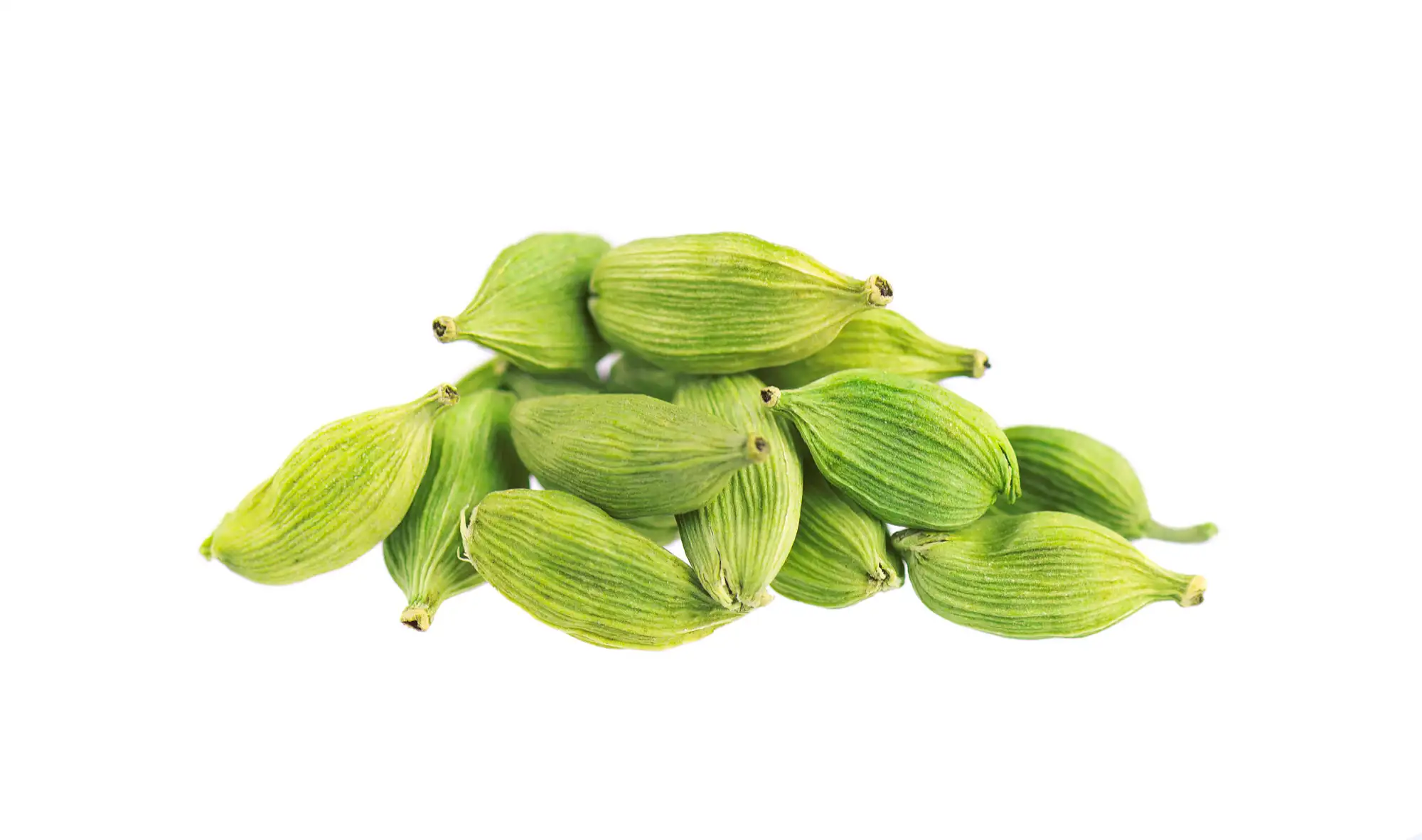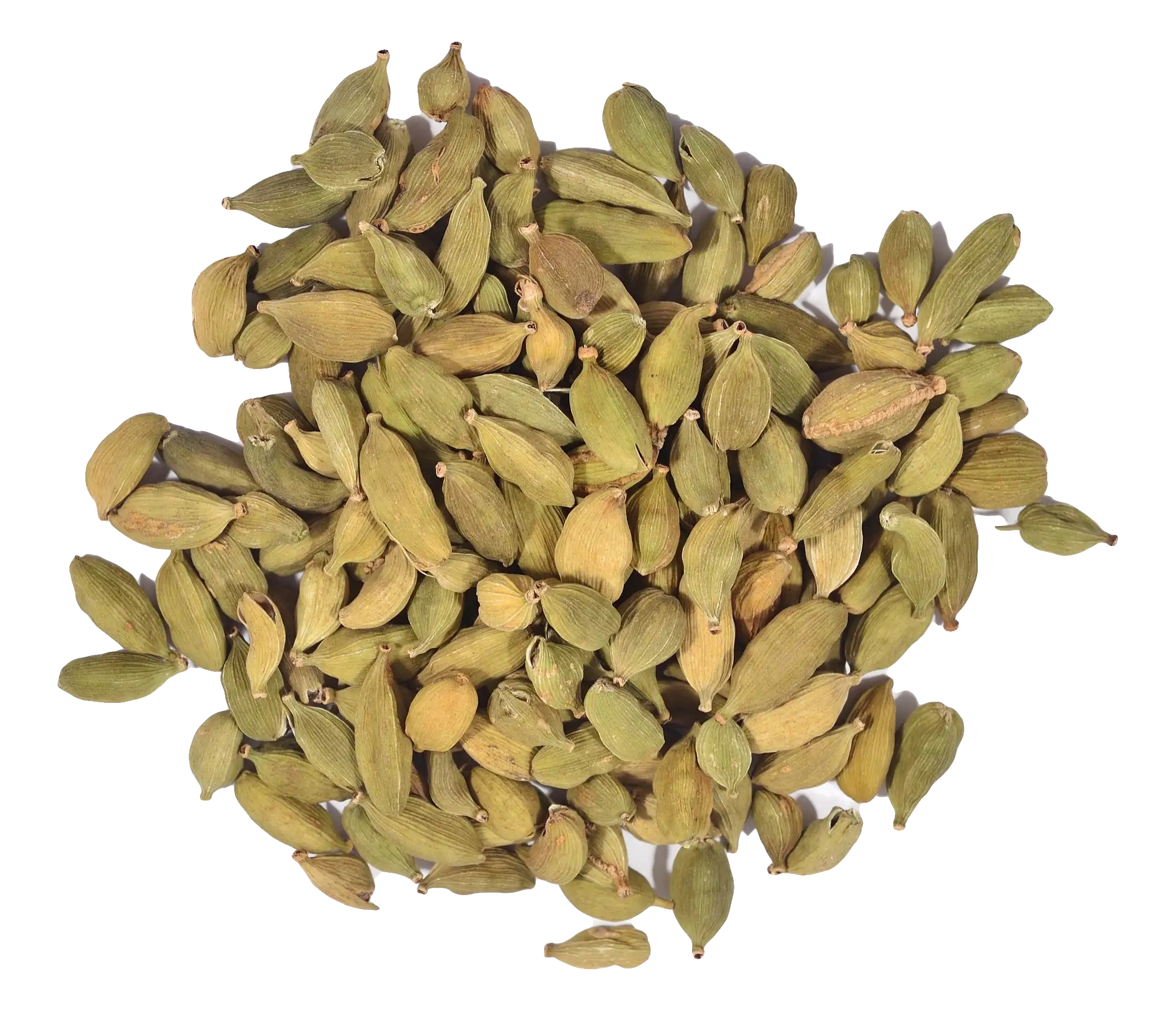Cardamom essential oil
Elettaria cardamomum
Cardamom essential oil, derived from the seeds of the cardamom plant (Elettaria cardamomum), offers a rich blend of history, health benefits, culinary versatility, and spiritual depth. Known as the “Queen of Spices,” cardamom has captivated cultures for centuries with its warm, sweet aroma and remarkable properties. In this post, we will explore everything you need to know about cardamom essential oil—its fascinating history, diverse uses, and its unique effects on the mind, body, and soul.
A Brief History of Cardamom
Cardamom has ancient origins in India, where it was used as a medicinal herb and a prized spice. It became a staple in Ayurvedic medicine for treating digestive issues, respiratory problems, and even depression. Ancient Egyptians chewed cardamom seeds to freshen their breath and maintain oral health. The spice gained popularity across Europe during the Middle Ages, eventually finding its way into both culinary and medicinal practices worldwide. Today, it remains highly valued for its essential oil, extracted through steam distillation of its seeds.

Scent description
Spicy, fruity, warm, balsamic
Usage
Inhaled | topically | internally
Effects, use cases
Digestive stimulant | antispasmodic | anti-inflammatory | expectorant | expectorant | anti-flatulent | nasal congestion | stomach ache | constipation | diarrhea | menstrual pain | muscle pain | sore throat | fever | bad breath
Warning, safety cautions
Essential oils are not intended to diagnose, treat, or prevent any disease, nor do they replace medications or therapies prescribed by a physician. They are not medicinal products and do not qualify as drugs. Based on experience, essential oils may have complementary therapeutic effects. If you are unsure about how an essential oil might affect you or your child, consult your general practitioner and/or a qualified aromatherapist. Before using any new essential oil (especially internally or directly on the skin), perform a patch test.
Use and health effects of cardamom essential oil
Culinary use
Cardamom essential oil adds a burst of flavor to both sweet and savory dishes. In Indian and Middle Eastern cuisines, chefs commonly use it to enhance the taste of desserts, teas, and rice dishes. You can add a few drops of cardamom oil to baked goods, smoothies, or warm beverages for a unique and aromatic flavor.
Digestive aid
Cardamom oil stimulates digestion by promoting the secretion of digestive enzymes, which helps relieve indigestion, bloating, and stomach cramps.
Anti-inflammatory properties
Its potent anti-inflammatory compounds help reduce swelling and pain, making it a natural remedy for sore muscles and joint discomfort.
Respiratory Support
Inhalation of cardamom essential oil can alleviate respiratory issues such as cough, bronchitis, and congestion. The oil acts as a natural expectorant, clearing mucus and soothing irritated airways.
Antimicrobial effects
Cardamom essential oil exhibits antimicrobial properties, which can help combat harmful bacteria, fungi, and viruses.
Mood enhancer
Its warm, spicy aroma acts as a natural mood booster, reducing stress and anxiety while promoting mental clarity.

How to use Cardamom essential oil?
Nasal congestion
Massage into your chest or apply directly to the bridge of your nose. You can also use it in a diffuser.
Diarrhea
Massage into your abdomen.
Muscle pain
Massage into the painful area.
Mental fatigue
Apply directly under your nose and to the back of your neck.
Stomach ache, constipation
Take 1 drop in a capsule or massage into your abdomen.
Menstrual pain
Massage into your abdomen and lower back at the level of your uterus and ovaries.
Sore throat
Gargle with 1 drop in a glass of water or apply directly to your throat and neck externally.
Bad breath
Take 1 drop in an empty capsule.
Disclaimer: always check the manufacturer’s recommendation before using any essential oils internally or topically!
Warning, safety cautions
Essential oils are not intended to diagnose, treat, or prevent any disease, nor do they replace medications or therapies prescribed by a physician. They are not medicinal products and do not qualify as drugs. Based on experience, essential oils may have complementary therapeutic effects. If you are unsure about how an essential oil might affect you or your child, consult your general practitioner and/or a qualified aromatherapist. Before using any new essential oil (especially internally or directly on the skin), perform a patch test.
Cardamom essential oil – spirituality and soul
Cardamom essential oil holds a special place in aromatherapy and spiritual practices. Its calming yet invigorating scent helps create a balanced environment, making it ideal for meditation and relaxation.
Spiritual awakening
Practitioners often use it to stimulate the third eye and heart chakras, aiding in spiritual growth and emotional healing.
Emotional balance
The oil’s soothing properties help release negative emotions, promote self-confidence, and enhance one’s sense of inner peace.
Energy cleansing
When diffused, cardamom essential oil can purify the air and elevate the overall energy of a space.
Recommended manufacturers of Cardamom essential oil
dōTERRA
This essential oil is currently available from dōTERRA.
For further information, visit the dōTERRA website.
Young Living
Young Living is currently selling this essential oil.
For further information, visit the Young Living website.
Contact info
Author:
Roseware Kft. - Réka Rózsáné Illés
Affiliate programs
I am open to be the part of affiliate programs with essential oil manufacturers and sellers. Contact me!
Copyright info
Photos and texts on this website are subjects of copyright - the owner of the copyright is Roseware Kft. - Réka Rózsáné Illés. Do not use any of these without permission.
